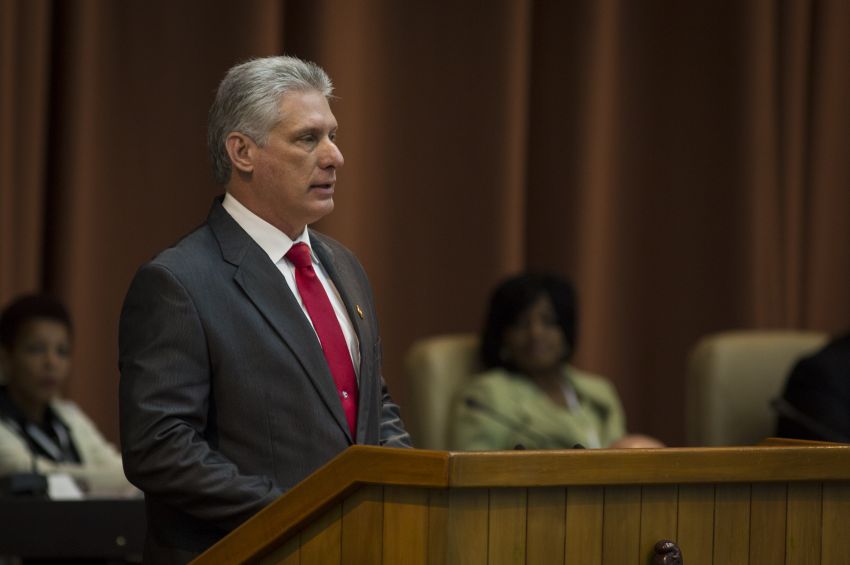
The Cuban government has accused the United States of being behind protests planned to take place in the country on November 15.
The protests are organised by a group called Archipiélago which claims to have some 20,000 members. Many of these members live outside the country and, in particular, in the United States.
The protests were originally planned for November 30, but that day was declared “National Defence Day”, so they were moved forward to November 15.
US State Department spokesperson Ned Price was asked directly at a media conference whether the US government was behind the protests.
Price didn’t unequivocally deny that his government was behind the protests, saying: “We stand with the right of the Cuban people, and the right of people everywhere, to assemble peacefully, to have their voices heard.”
Price referred to the manifestation of supposed “unmet needs” and “unmet aspirations” on the part of the Cuban people.
Requests to engage in what are claimed would be “peaceful” protests, in the form of marches, were made to the authorities in 6 of Cuba’s 15 provinces.
According to the requests, the proposed marches are “against violence, to demand that all the rights of all Cubans be respected, for the release of political prisoners and for the solution of our differences through democratic and peaceful means”.
The requests have been denied on the grounds that the organisers of the planned protests are backed by the US, which seeks to overthrow the Cuban government.
According to a statement on Cuba’s official Cuba Debate website: “The promoters and their public representatives, some of whom have links with subversive organizations or agencies financed by the American government, have the clear intention of promoting a change in Cuba's political system.”
Yunior García Aguilera, an oppositional Cuban artist, has vowed that the protests will still go ahead, despite the refusal.
Hundreds of Cubans took to the streets in July to protest shortages of food, medicine and fuel.
The shortages originate from the decades-long US economic, financial and commercial embargo, which was escalated during former US president Donald Trump’s term.
Trump imposed 240 additional sanctions on Cuba — about 55 of which were implemented during the COVID-19 pandemic. Following the July protests, President Joe Biden’s administration imposed further sanctions on the Cuban government.
The US sanctions have one aim: regime change. They continue to cause great suffering among the Cuban people, especially during the pandemic.
Cuban president, Miguel Díaz-Canel, said the July protests were “nothing more than provocations and acts of vandalism as part of the strategy of the nonconventional war and the ‘soft coup’ against our revolution”.
Díaz-Canel says the protests planned for November 15 are “a plan orchestrated by the exterior”, namely, the US. He went on to say “The declared objective of the United States government is to topple the Cuban revolution.”
Díaz-Canel has accused the US government of using its embassy in Havana to subvert the internal order of Cuba, saying that US diplomats frequently meet with “those who head the counterrevolution” in order to offer assistance and financing. However, García claims that the organisers of the proposed protests agreed not to accept outside funding.
As for the protests planned for November 15, Díaz-Canel said they involve think tanks and US government spokespeople.
The US has been very upfront and unambiguous about its support for the ‘Cuban people’.
In February, the US taxpayer-financed National Endowment for Democracy (NED) — an organisation funds an array of projects and movements compatible with US aims and objectives — published a list of organisations that received just over $5 million in grants for work in Cuba in 2020.
There were 15 undisclosed recipients of NED grants for aims such as the promotion of “independent thinking” in Cuba, strengthening “access to information and enhancing critical thinking”, and promoting “freedom of expression in Cuba through the arts”.
One such project is ‘Empowering Cuban Hip-Hop Artists as Leaders in Society’, the ostensible aim of which is to “empower Cuban artists as cultural leaders to promote citizen participation and social change in society”.
The Cuban government, as well as critics of the US government, claim that the real aim of these bodies and projects is regime change.